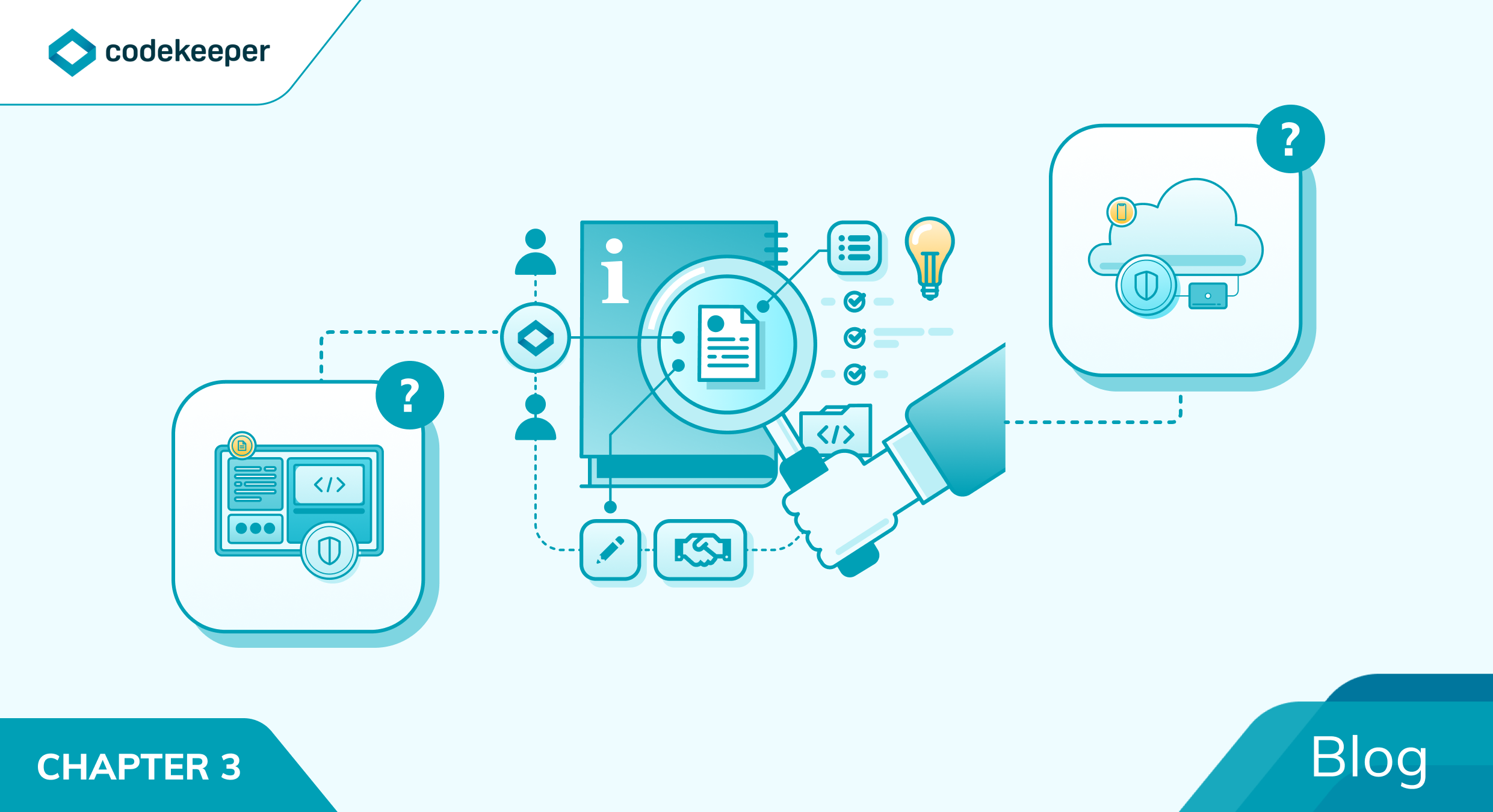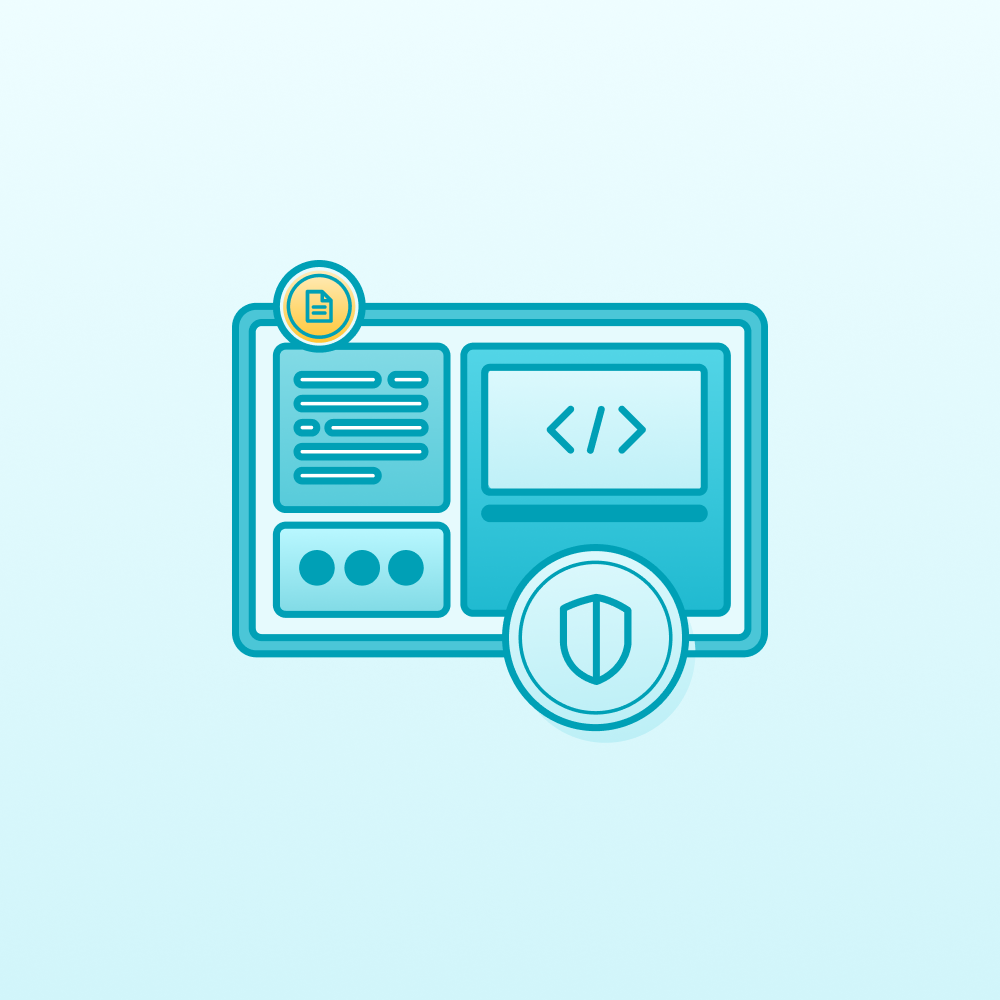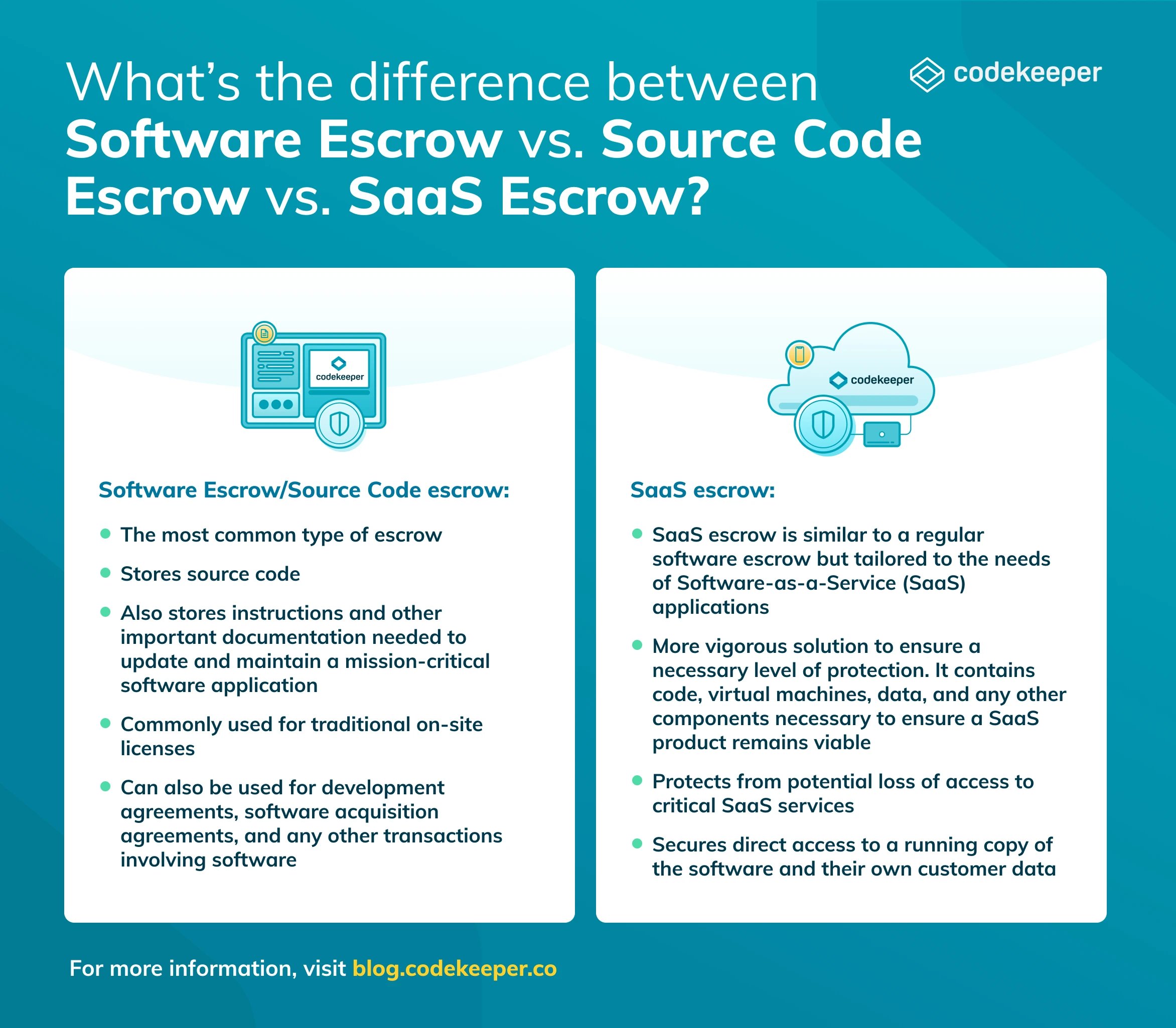The Ultimate Guide to Software and Source Code Escrow - Chapter 3
Software escrow. Source code escrow. Saas escrow. Technology escrow. Data escrow. Information escrow. Domain escrow. So many escrows! What's the difference?

By Content Team
Table of contents:
What’s the difference between software vs. source code vs. SaaS escrow?
Software escrow. Source code escrow. Saas escrow. Technology escrow. Data escrow. Information escrow. Domain escrow. So many escrows!
If you’ve been researching what a software escrow agreement is—and since you’re reading this article, a wild guess would be that you have. You have probably come across these and other terms. But what do all of them mean?

Software Escrow and Source Code Escrow
“Software escrow” and “source code escrow” are terms that are used interchangeably, and they essentially mean the same thing.
As described throughout this article, this is the most common type of escrow, designed to store not only source code, but also build instructions and any other important documentation that would allow a licensee to update and maintain a mission-critical software application. Though they are most commonly used for traditional on-site software licenses, software escrow can also be used for development agreements, software acquisition agreements, and any other transactions involving software.
However, as software shifts away from the traditional on-site licensing model, SaaS and other cloud escrows are becoming increasingly more important.
SaaS Escrow
Beneficiaries come from a wide array of industries such as logistics, retail, financial services and many more. For all intents and purposes, SaaS escrow is quite similar to a regular software escrow; however, it is tailored to the unique needs of Software-as-a-Service (SaaS) applications, which often require a more robust solution to ensure a necessary level of protection.

Much like software escrow, it contains code, virtual machines, data, and any other components necessary to ensure a SaaS product remains viable.
By establishing a SaaS escrow agreement, a company that subscribes to a SaaS application protects itself from a potential sudden loss of access to critical SaaS services—whether temporary or long-term—and secures direct access to a running copy of the software and their own customer data in case release conditions are met.

Some other types of escrow arrangements that you may come across include:
- Technology escrow (typically holds items of physical technology, such as encryption keys, prototypes, product designs, chemical formulas, and any other variation of technology that can be stored physically, electronically, or in the cloud);
- Data escrow (applies to custodians of data such as service providers or internet domain registries, and it ensures that up-to-date copies of domain name ownership and contact details are held in escrow in the event of a registry’s business or technical failure);
- Domain escrow (holds the credentials of a domain and helps reduce risk when purchasing a domain or using a domain as collateral).An escrow agent should be able to provide verification services upon request.


This article is part of the FREE Ebook:
The Ultimate Guide to Software and Source Code Escrow
Do you want to be the first one to know when the Ebook is published? Subscribe to our newsletter here .



